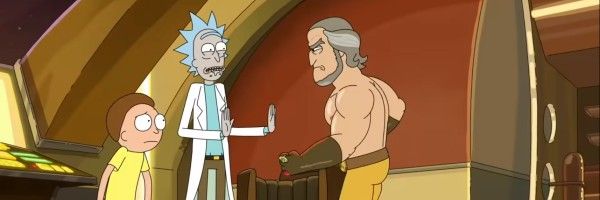
"Rick and Morty," created by Dan Harmon and Justin Roiland, is celebrated for its intellectual humor and intricate narrative layers. In the fourth season's sixth episode, "Never Ricking Morty," the show ventures into metafictional territory, providing fans with a mind-bending experience that challenges traditional storytelling. This episode is a whirlwind of self-awareness, satire, and genre-blending, and it prompts viewers to question not only the show's own conventions but the nature of storytelling itself. In this blog post, we will dissect the layers of meta madness within "Never Ricking Morty," examining its narrative impact, unique narrative structure, and its lingering questions.
Genre Mashup: The episode features a series of interconnected vignettes, each adopting a different genre. From a murder mystery to a sci-fi adventure to a romance drama, it covers an impressive range of storytelling styles within a single episode.
Narrative Subversion: Throughout the episode, it seems like it's building towards a climactic revelation or resolution, only to pull the rug out from under the viewer, subverting expectations and playing with storytelling conventions.
Critique of Storytelling: It offers a satirical critique of common storytelling tropes and clichés, highlighting the absurdity of some traditional narrative elements.
Existential Themes: "Never Ricking Morty" delves into existential themes, exploring the characters' purpose and the nature of reality. It forces both the characters and the viewers to question the meaning of it all.
Visual Creativity: The episode's visuals are particularly creative. The train setting, with its seemingly endless compartments, offers a visually stimulating backdrop for the various storylines.
Complexity: It's one of the more complex episodes in the series, requiring viewers to pay close attention to detail. This complexity invites repeated viewings and discussions among fans.
Discussion Questions:
"Never Ricking Morty" continuously plays with the idea of storytelling, often breaking the fourth wall. How does this self-awareness affect your engagement with the episode? Does it enhance your understanding of the themes explored or make the narrative more convoluted?
The train setting allows for a variety of genres and scenarios to be explored within a single episode. How do these diverse narratives comment on the storytelling tropes they represent? What do they reveal about the show's approach to genre and convention?
"Rick and Morty" often follows the story circle, a narrative structure inspired by Joseph Campbell's monomyth. How does this episode adhere to or subvert the traditional story circle structure? What elements of the hero's journey can you identify in "Never Ricking Morty," and how are they twisted or reinterpreted to fit the show's unique style and message?
Lastly, have you seen other episodes of this show? did you like this episode? Why/why not?
-------
Companion video: https://www.youtube.com/watch?v=14L0dbGj0tI

1. In the episode “Never Ricking Morty” from the fourth season of Rick and Morty there is a continuous breaking of the fourth wall and self-awareness in the storytelling which adds to the uniqueness of the episode. This enhances the engagement by making the audience feel more involved in the narrative almost like they are a part of the story themselves. The self-awareness of the episode can also deepen the understanding of the new themes that are explored by challenging traditional storytelling expectations. What this does is it adds a new and intriguing perspective to the episode's overall experience.
ReplyDelete2. The train setting in this episode of Rick and Morty dives deep into different genres and scenarios in one single go. Every narrative on the train represents and comments on many different storytelling tropes. By showing these diverse genres the episode parodies different storytelling conventions. This reveals that the show's approach to genre by highlighting how it can play with and change the traditional genre expectations. The episode's exploration of these diverse narratives adds depth and humor while also showcasing Rick and Morty’s innovative and unconventional take on storytelling.
3.In this episode of Rick and Morty, there are many elements of the heroes journey that are being used such as the call to adventure, challenges faced by the characters, and the return with newfound knowledge. Although these elements are all used in a satirical way which is typical of Rick and Morty. The call to adventure is a very meta commentary on storytelling itself where the challenges are exaggerated and twisted versions of the traditional obstacles.
4.Yes, I have seen other episodes of the show and I love it! I liked this episode because I liked the different story lines and humor of the episode.